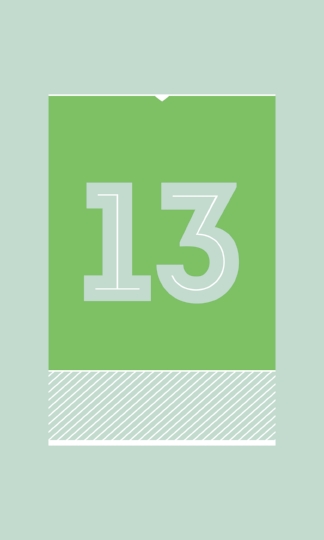Danielle McLaughlin, "Secondary Memory"
It's December 13. Danielle McLaughlin, author of Dinosaurs on Other Planets, maintains a healthy distrust of the cloud.
How would you describe your story?
DANIELLE MCLAUGHLIN: Odd. I’m hoping that as well as experiencing it as a bit strange, the reader might also find it funny.
When did you write it, and how did the writing process compare to your other work?
DM: It was one of the first new stories I wrote after finishing edits on my short story collection, Dinosaurs on Other Planets, back in 2015. It was commissioned by BBC Radio 4 as part of a series called The Computer Speaks. It was fun to have such an unusual brief. I wrote it quite quickly, which was unusual for me—I tend to be a very slow writer and do an awful lot of drafts. The faster pace with this one was partly down to having a deadline—deadlines can be good that way—but also because, for reasons I can’t explain, I find that when I write for radio, when I’m writing with the ear in mind, the stories come out more quickly.
What kind of research went into this story?
DM: I researched computers a little, but only a little because it’s a story that invites the reader to leave reality, as we understand it, behind. And when I first met him, my now husband had one of those old Amstrads, so I incorporated my recollections of typing on that.
What, to you, makes the short story a special form? What can it do that other kinds of writing can't?
DM: There’s an intensity to the short story that other forms of writing often lack, and so it has the propensity to better unsettle. Also, I think that it’s possible to ask more of the reader in a short story. Since with a short story I’m asking the reader to stay with me for a shorter period of time, I feel I’m allowed to present the reader with more challenges. This in turn leads to more deeply engaged readers, and so short stories have the potential to become more personal reading experiences, where the reader, rather than the writer, is the one who finishes the story, where the reader comes to experience it as ‘their’ story rather than ‘a’ story.
Where should people go to learn more about you and your work?
DM: www.daniellemclaughlin.ie or on Twitter @DanniLmc.
What's the best gift you've ever been given?
DM: That’s a difficult one! I’m inclined to think books (I know writers tend to say that a lot, but there it is), especially the books my parents gave me as a child. Then there was the gift I wasn’t actually given as a child, but it escaped from its box during the night and when I got up I found it wandering around our kitchen—a rabbit. I still remember the magic of that. A friend of my parents had, out of the blue, given the rabbit to my father, thinking us kids would like it, but my parents had decided we couldn’t possibly keep it. The intention, I think, was that it would discreetly be moved on to a more suitable new home, and it did end up being re-homed, but I still remember the fun of discovering a rabbit in our house that morning!
* * * * *
What did you think of today's story? Use the hashtag #ssac2017 on Twitter, Facebook, and Instagram to check in with your fellow advent calendarians.
